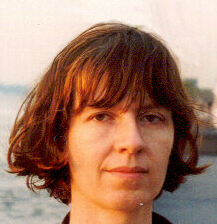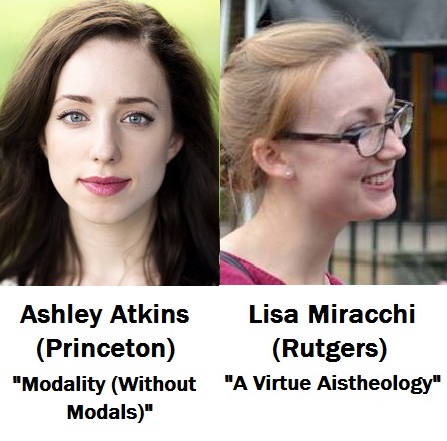
2013-2014 Events
Monday, May 5th, 2014, 5-7 PM
SWIP-Analytic 2014 Essay Prize Winners Fatema Amijee (UT-Austin) “The Normativity of Nonsense” and Kate Nolfi (UNC-Chapel Hill) “Why the Epistemic Status of Our Beliefs Ought to Weigh With Us” presented at SWIP-Analytic on Monday, May 5th at the Graduate Center, CUNY.
ABSTRACT: I argue that if belief is subject to a truth-norm, then it is also subject to a norm of nonsense that is distinct from, though perhaps ultimately reducible to the truth-norm. I take as my starting point an old debate between Russell and Wittgenstein. Russell famously abandoned his multiple relation theory of judgment in response to Wittgenstein’s objection that Russell’s theory was unable to rule out judging nonsense. But what is nonsense, and why should it be a criterion of adequacy on any theory of judgment (i.e. belief) that it should make it impossible to judge nonsense? I distinguish between two distinct notions of nonsense, and show that while on the first construal nonsense does contribute to a criterion of adequacy on any theory of judgment, it does not on the second construal. However, the second notion of nonsense plays an important normative role for belief.
Nolfi ABSTRACT: Reflection on certain sorts of cases suggests that although the epistemic status of our beliefs is not necessarily decisive in determining what we ought to believe, the epistemic status of our beliefs ought, nevertheless, to weigh with us. This paper develops and defends a novel explanation of why this is by showing how conceiving of our capacity for belief as constitutively tied to our capacity to act in the way that we paradigmatically do supplies a satisfying explanation of why it is that (i) if it is or would be irrational for one to believe that P, one has a reason to not believe that P and (ii) if it is rational for one to believe that P, one has a reason to believe that P.
______________________________________________________________________________
Monday, March 3rd, 2014, 5-7 PM
Professor Gillian Russell (Washington University in St Louis) presented “Hume’s Law and Other Barriers to Implication”. The presentation took place at the CUNY Graduate Center, 365 5th Ave, Room 5307.
This event was co-sponsored by SWIP-Analytic and the Saul Kripke Center.
______________________________________________________________________________
Tuesday, February 11th, 2014, 5-7 PM
Professor Katalin Balog (Rutgers) presented “Is there a hardest problem of consciousness?” at SWIP-Analytic on Tuesday, February 11th at NYU’s Philosophy Department, 5 Washington Place, Room 202. A reception will follow. Paper abstract below.
ABSTRACT: In this paper I discuss three problems of consciousness. The first two have been dubbed the “Hard Problem” and the “Harder Problem”. The third problem has received less attention and I will call it the “Hardest Problem”. The Hard Problem is a metaphysical and explanatory problem concerning the nature of conscious states. The Harder Problem is epistemological, and it concerns whether we can know, given physicalism, whether some creature physically different from us is conscious. The Hardest Problem is a problem about reference. Recently some philosophers – among them David Papineau – who advocate a physicalist approach to both the Hard and the Harder problem have called into question the common sense assumption that phenomenal concepts – subjective concepts that we apply directly to experience – refer determinately (modulo vagueness) to real properties that can be instantiated in minds other than my own. The Hardest Problem is the problem of explaining how, given physicalism, this assumption could be true. In this paper I explore how these three problems appear from the perspective a physicalist approach to consciousness called “phenomenal concept strategy”. My contention is that this approach can go quite far in handling not just the first two problems but the Hardest Problem as well.
______________________________________________________________________________
Monday, January 20th, 2014, 5-7 PM
Professor Sarah-Jane Leslie (Princeton) will present her empirical work on women in philosophy in a talk entitled “Gender Gaps and Conceptions of Ability” (abstract below). The event will be held at the CUNY Graduate Center, 365 5th Ave, Room 5409. A reception will follow.
Abstract: Some academic disciplines have significant gender gaps (e.g., philosophy), while others do not (e.g., molecular biology). Why is this so? Sometimes, the phenomenon is characterized in terms of the natural sciences/mathematics having large gender gaps, and the social sciences/humanities having small or no gender gaps. This is a crude characterization, as reflection on disciplines such as philosophy vs. molecular biology illustrates. Are there any general, isolable factors that predict the occurrence of gender gaps across all academic disciplines, and also within the broad domains of natural sciences/mathematics, and social sciences/humanities? Recent data collected by my collaborators and me suggest that one such factor may be how the practitioners of the discipline conceive of the ability required for success in it — in particular, the extent to which innate, immutable, natural talent is emphasized, at the expense of hard work and dedication, predicts the presence and extent of a discipline’s gender gap. I discuss the nature of this spectrum of conceptions of ability, and how and why they relate to gender gaps in academic disciplines.
______________________________________________________________________________
Monday, November 11th, 2013, 5-7 PM
The second SWIP-Analytic workshop was given by graduate students Ashley Atkins (Princeton), presenting “Modality (Without Modals)“, and Lisa Miracchi (Rutgers), presenting “A Virtue Aistheology“, at the CUNY Graduate Center, 365 5th Ave, Room 5409.
______________________________________________________________________________

Monday, October 7th, 2013, 5-7 PM
The first SWIP-Analytic workshop was given by Sharon Street (NYU) at the CUNY Graduate Center, 365 5th Ave, Room C203. Click here for an outline of Sharon Street’s presentation. Reception after Professor Sharon Street’s SWIP-Analytic presentation “Normativity and Water: The Analogy and Its Limits” at the CUNY Graduate Center, October 7, 2013.




